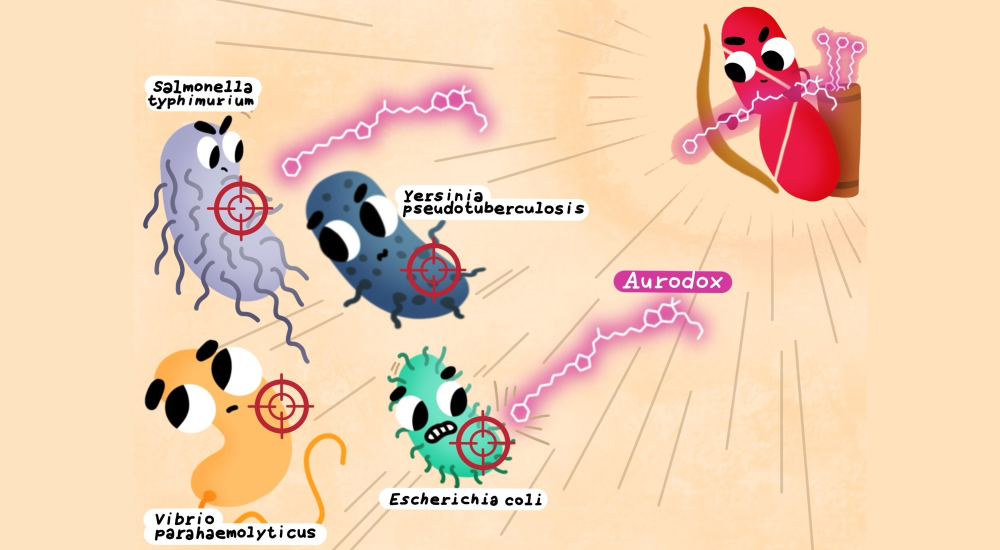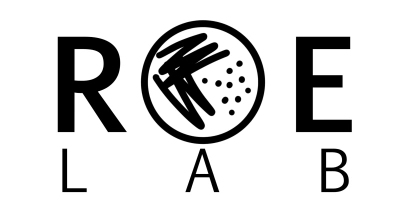Research Uncovers Antibiotic-resistant Infection Treatment
Published: 28 November 2024
New research led by the School of Infection & Immunity's Professor Andrew Roe and Dr David Mark has shown that the compound aurodox can reduce virulence in multiple gram-negative pathogens, paving the way for it to be used to treat a wide range of antibiotic-resistant infections.

New research led by the School of Infection & Immunity's Professor Andrew Roe and Dr David Mark has shown that aurodox could be used to treat a wide range of antibiotic-resistant infections.
Published this week in Open Biology, the study, titled ‘Aurodox inhibits type III secretion in multiple Gram-negative pathogens', is the result of a collaboration involving Roe Research Group colleagues, past and present.
Initially led by Dr Nicky O'Boyle, now a lecturer in molecular microbiology at Trinity College Dublin, Dr Mark then took up the baton in the effort to explore applications of the compound aurodox.
A natural product that was developed in the 1970s, aurodox initially proved a poor candidate as an antibiotic.
However, when 'rediscovered’ 40 years later, it was revealed to be a potent inhibitor of virulence in some strains of E. coli, as well as the likes of Salmonella, Yersinia, and Vibrio.
Examples of gram-negative bacteria, these pathogens are a major health threat due to their resistance to antibiotics.
Having worked on aurodox in the context of E. coli in the past, the Roe Group wanted to address the important question of whether it could be more widely used to treat other infections.
Specifically, the study investigated the ability of aurodox to disrupt infection mechanisms instead of killing bacteria.
The team found that aurodox also inhibited the infection machinery in these bacteria and could protect cells from late-stage Salmonella infections.
Exactly how aurodox works was explored to reveal more insights into the likely common target, and this research paves the way for its use in treating a wide range of antibiotic-resistant infections.
New Sii Director of Research Professor Roe said: "This paper represents a true team effort involving many former and current members of the group.
"The project was initially started by Nicky O’Boyle, a long-term member of the group who left to set up his own group in Ireland.
"Nicky then handed over to Dave [Dr David Mark], who took the study to completion with the help of Rebecca [Dr Rebecca McHugh], our aurodox guru having worked on this compound for several years.
“Significantly, we have now shown that aurodox can reduce virulence in multiple gram-negative pathogens, which makes it more attractive to industry and clinicians in the longer term.”
-
The Roe Group would like to acknowledge funding from the Wellcome Trust CIC scheme for funding work by David Mark and Nicky O'Boyle and the Wellcome Trust IIB PhD Scheme for funding Samantha Tucker. The Medical Research Council (MR/V011499/1) funded Rebecca McHugh and Andy Roe
-
Graphical abstract visual art design by Iris Floria
First published: 28 November 2024


